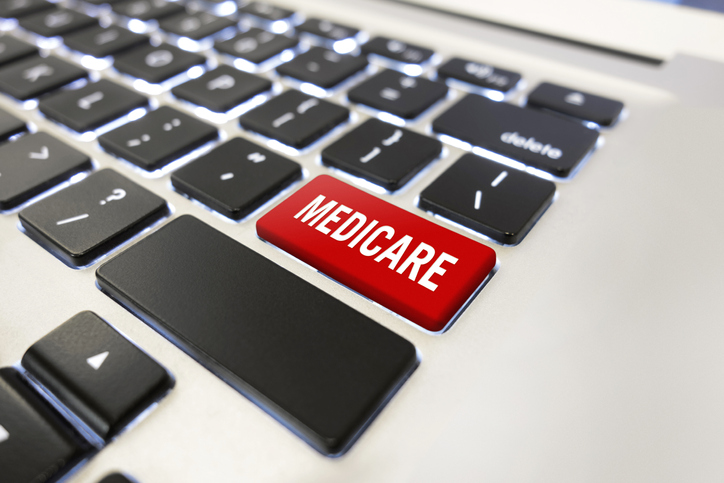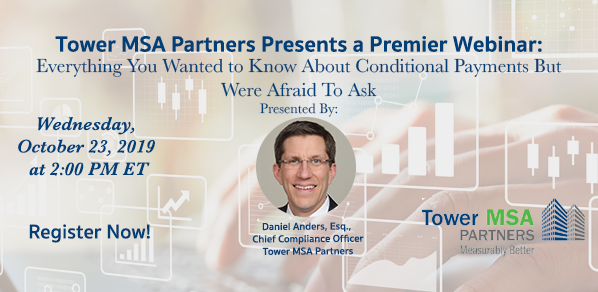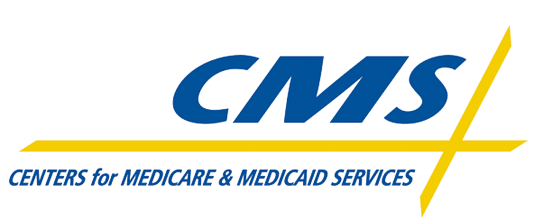On January 14, 2020 CMS held a Town Hall to discuss common
Commercial Repayment Center (CRC) NGHP ORM Recovery topics. In attendance on the call were various
officials from CMS as well as Performant Recovery the CRC contractor. For the most part, the presentation
reiterated well-known Medicare conditional payment processes such as differences
between conditional payment letters and notices, responding to demand letters
and procedures and timelines to dispute and appeal conditional payments.
The slides and notes from the presentation can be found here.
CMS also introduced and explained Pre-CPN Worksheets and
Open Debt Reports which we summarize below:
Pre-CPN Worksheet
A Pre-CPN worksheet contains cases that have been reported
through the Section 111 reporting process, but for which the CRC has yet to
issue a CPN. The purpose of this optional
worksheet is for the employer or carrier debtor to identify debts which will
not be disputed. Important, it is only accessible
to Account Managers for Responsible Reporting Entities (RREs) by contacting the
CRC with the entity’s tax identification number and RRE ID.
It is expected the Pre-CPN worksheet will contain claim
numbers and the total amount of the claimed debt, but it is uncertain whether
it will itemize conditional payment charges.
Once reviewed, it is returned to the CRC with an indication of what
claims will not be disputed. The CRC
then moves forward with issuing the CPN.
Open Debt Reports
The CRC advised that Open Debt Reports are now available in
the MSPRP on all cases where the RRE insurer is the debtor and where there is a
balance due. The Open Debt Report is
only available to the debtor (the RRE) meaning recovery agents, such as Tower,
cannot access the reports.
Open Debt Reports are helpful in confirming not only that
the RRE is aware of the debt but that the status of the debt, i.e. on appeal,
matches their expectation of the status of the debt with the CRC. If a debt is unknown or the status does not
match what is expected, then it provides an opportunity to contact the CRC and
clarify the matter.
Q&A Session
Following the formal presentation there was a Q & A
session which provided the following notable takeaways:
Treasury Department notices: A question asked whether
more information, such as a claim number, can be included on Treasury
Department collection notices. CMS
advised that as the Treasury Dept. collects for the entire federal government
it is difficult for Treasury to add information specific to one government
program.
Charges unrelated to the injury: Another question asked whether any efforts
are being made to reduce the number of unrelated charges found on conditional
payment letters and notices. CMS
responded that efforts are being made to improve the “grouper” algorithm that
searches Medicare billing records to identify charges related to the WC
injury. CMS indicated they have an
outside contractor reviewing the methodology.
Statute of limitations on Medicare conditional payment recovery: CMS responded to a question on the statute of limitations on Medicare conditional payment recovery by stating that the three-year statute of limitations added to the MSP Act by the SMART Act in 2013 does not apply to its administrative recovery efforts, rather it only applies to legal actions taken by the federal government.
Practical Implications
In regard to the Pre-CPN, it should be reiterated that this
is optional. If, as we expect, the
worksheet does not itemize conditional payment charges related to the claim,
then we are uncertain as to the usefulness of this document.
Turning to the Open Debt Report, this can be a very useful
document in confirming an employer or carrier’s current Medicare debts assuming
it is accurate. However, as a recovery
agent for many RREs, we are disappointed that the CRC is only making these
reports available to the RRE who registers for access through the MSPRP and not
directly providing to the recovery agent for the RRE.
Notably, CMS’s position on the three-year statute of
limitations for conditional payment recovery only applying to legal actions and
not administrative actions raises uncertainty for both payors and claimants as
to exactly how long Medicare has to recover.
Our expectation is that this will ultimately be resolved in the courts.
Finally, we are well aware of conditional payment notices
and demands containing numerous charges unrelated to the injury. Often the entire conditional payment claim by
Medicare is unrelated. We hope efforts
by CMS and the CRC with adjusting this so-called grouper algorithm results in
less unrelated charges in the future.
If you have any questions about the Town Hall call or the
issues addressed above, please contact Dan Anders at daniel.anders@towermsa.com or
888.331.4941.









